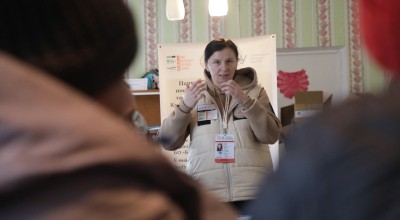
Read our 2024 annual report

Knowledge Hub
On February 24 2022, the lives of people living in Ukraine changed forever. The escalation of conflict left 17.7 million in dire need of assistance and created a grave humanitarian crisis. The global response was unprecedented, and one of compassion and generosity.
People invited displaced families into their homes, handed out hot drinks at borders, and donated what money they could to appeals for help. All acts of kindness – big or small – made an impact on vulnerable people’s lives.
Over the months, this money has been carefully allocated via organisations such as Concern to support the people that need it the most. One such programme is multi-purpose cash assistance.
How does it work?
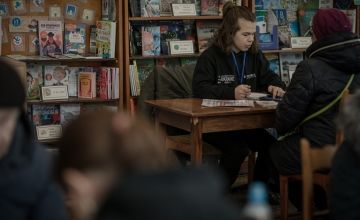
Cash assistance is a means of support deemed highly effective and dignified for both Internally Displaced Persons (IDPs) and host communities, as it supports local markets and allows people to identify and remedy their own needs. In simple terms, we give cash directly to vulnerable people to spend it on what they need the most; be it food, clothing, bills or medicine.
There are a few steps in the process of signing people up to receive cash assistance:
-
Possible recipients are pre-identified through databases, local networks or referrals, provided by local authorities and humanitarian hubs.
-
This list of pre-identified recipients is then shared with organisations responsible for cash assistance registration, for example Concern.
-
Registration is then conducted by phone or face-to-face interviews to check their eligibility and to collect information such as bank details.
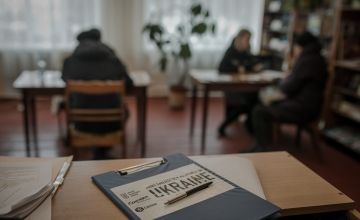
Those registered then receive money into their bank accounts via MoneyGram and a digital service provider.
In total, 16,078 people have been registered to receive cash support since the programme began. In October alone, the DEC (Disasters Emergencies Committee)-funded programme distributed cash to 7,565 people.
Meet the people who have received cash support
While numbers are important, individual stories are the real testimony to the generosity and support of people across the globe.
Meet Artem*
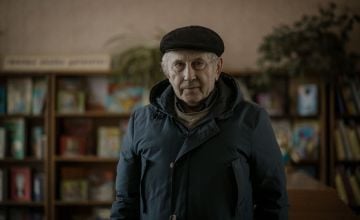
76-year-old Artem fled his hometown in early March with his wife and one of his sons.
Before the conflict, Artem explains: “We were living a normal life. We were sufficient; we had our apartment and my teacher’s pension, which was not very significant but sufficient. We had a garden as well. We didn’t have a rich life, but we had a normal life.”
They fled with whatever they had on and are now living in a college dorm. Artem found out about the cash assistance through a notice in the dorm. This is their second cash transfer, the first of which they spent mainly on food.
Meet Daniela*
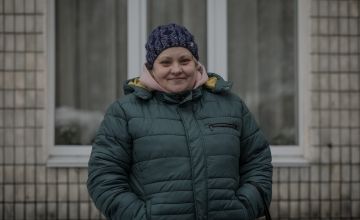
Daniela, 47, has been displaced for nine months with her husband and her six-year-old daughter, having fled the conflict. “It took us 15 minutes to pack and leave because we didn’t want her to witness it. I remember the 24 February very well. We mainly took clothing with us, but also pictures. It is good that we also have some pictures on the phone.”
This is Daniela’s first time receiving cash assistance. “We need help with utilities, and food of course. This the first and most important thing. As humans, we need food.” Up until now, Daniela has been supporting herself and her family with the state assistance for IDPs.
Daniela urges Concern and other organisations to “keep helping people like myself”.
Meet Victor* and Slava*
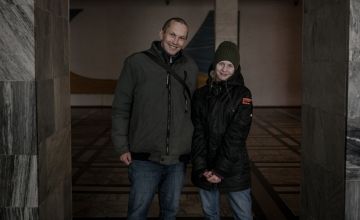
12-year-old Slava and 39-year-old Victor have been displaced for seven months. This is their second time receiving cash assistance, but it is their first time through the DEC-funded programme.
Slava misses her cat, Mourchyk, meaning ‘purrer’, the most.
When asked what they will spend the cash on, Slava replies, “to go home and get my cat.” Her dad adds, “She is obsessed with the cat. She is ready to go to war for that cat. Slava would like to get the cat, but really we would like to rent a proper apartment because we don’t want to have this feeling of being adopted.”
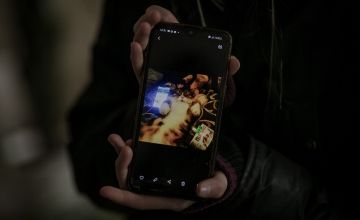
They are currently surviving on state assistance and Victor’s pension. However, he explains that this is not enough to sustain them. “Initially this seems to be a lot, but when you break it down it is not.”
Increasing our reach: cash support throughout the winter
The onset of winter conditions in Ukraine, where temperatures can drop below -20 degrees celsius, brings new dimensions to the humanitarian crisis. The next few months could be a matter of survival for millions of people if they cannot stay in a protected and warm place.
In order to continue supporting people throughout the winter, we are providing additional ‘winterisation’ cash transfers. We will select the most vulnerable individuals to receive a top-up payment so they can buy essentials like a warm coat, boots, hats, scarves and thermal underwear.
Other ways to help
Corporate support
Is your company interested in working together for a common cause?
Fundraise for Concern
From mountain trekking to marathon running, cake sales to table quizzes, there are lots of ways you can support our work.
Buy a gift
With an extensive range of alternative gifts, we have something to suit everybody.
Leave a gift in your will
Leave the world a better place with a life-changing legacy.
Volunteer with Concern
The lots of ways to get involved with our work as a volunteer
School fundraising
Without the generous support from schools, we wouldn't be able to do the work that we do.


